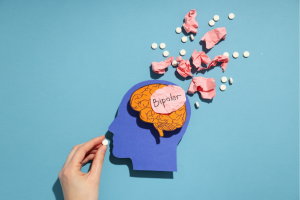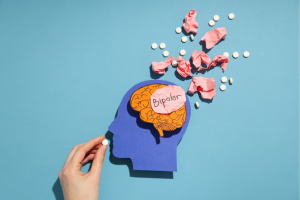Neurodevelopmental Disorders

Neurodevelopmental Disorders: Understanding ADHD, ASD/PDD, and Intellectual Disability
At Manoshanti Neuropsychiatry Clinic, we are committed to providing specialized care for children and adults with neurodevelopmental disorders. These conditions, which typically emerge during early development, can significantly impact an individual’s ability to learn, communicate, and interact with others. With early diagnosis and tailored interventions, individuals with neurodevelopmental disorders can thrive and reach their full potential.
What Are Neurodevelopmental Disorders?
Neurodevelopmental disorders are a group of conditions caused by atypical brain development, affecting cognitive, behavioral, and emotional functioning. They commonly include:
- Attention-Deficit/Hyperactivity Disorder (ADHD)
- Autism Spectrum Disorder (ASD)/Pervasive Developmental Disorder (PDD)
- Intellectual Disability (ID)
These disorders vary widely in severity and presentation, requiring individualized approaches to diagnosis and treatment.
Attention-Deficit/Hyperactivity Disorder (ADHD)
ADHD is characterized by difficulties with attention, hyperactivity, and impulsivity that interfere with daily functioning.
Signs and Symptoms:
- Trouble focusing on tasks or instructions.
- Frequent forgetfulness or disorganization.
- Excessive fidgeting or restlessness.
- Impulsivity, such as interrupting or acting without thinking.
Treatment Options for ADHD:
- Behavioral Therapy: Teaches skills for managing emotions and improving focus.
- Parent Training: Equips caregivers with tools to manage ADHD-related behaviors.
- Medication: Stimulants and non-stimulants to enhance attention and reduce hyperactivity.
Autism Spectrum Disorder (ASD) / Pervasive Developmental Disorder (PDD)
ASD is a developmental condition affecting communication, behavior, and social interactions. It includes a wide range of abilities and challenges, which is why it is called a “spectrum.”
Signs and Symptoms:
- Delayed speech or language development.
- Difficulty understanding social cues or engaging in conversations.
- Preference for routines and resistance to change.
- Repetitive behaviors, such as hand flapping or lining up objects.
- Heightened sensitivity to sensory input, like lights or sounds.
Treatment Options for ASD:
- Applied Behavior Analysis (ABA): Focuses on improving social, communication, and learning skills.
- Speech Therapy: Enhances language and communication abilities.
- Occupational Therapy: Helps with sensory integration and daily skills.
- Parent and Caregiver Training: Provides tools to support the child’s development.
Intellectual Disability (ID)
Intellectual Disability is characterized by limitations in intellectual functioning (reasoning, problem-solving, and learning) and adaptive behavior (practical and social skills).
Signs and Symptoms:
- Delayed developmental milestones, such as walking or talking.
- Difficulty learning new concepts or skills.
- Struggles with everyday activities like dressing, cooking, or managing money.
- Challenges in socializing or understanding social norms.
Treatment Options for ID:
- Special Education Programs: Tailored to individual learning needs.
- Life Skills Training: Focuses on improving independence in daily activities.
- Therapeutic Support: Includes behavioral therapy, speech therapy, and occupational therapy.
- Family Support Services: Helps families provide effective care and advocacy.
How Neurodevelopmental Disorders Are Diagnosed
At Manoshanti Neuropsychiatry Clinic, our diagnostic process is comprehensive and collaborative:
- Detailed Assessment: We gather medical, developmental, and behavioral histories from parents and caregivers.
- Standardized Tests: Tools to assess cognitive, emotional, and behavioral functioning.
- Observations: Evaluating the child’s behavior in clinical or natural settings.
- Team Collaboration: Involving psychiatrists, psychologists, therapists, and educators for a holistic understanding.
Importance of Early Intervention
Early diagnosis and intervention are crucial for improving outcomes in neurodevelopmental disorders. Addressing these conditions during the critical periods of brain development can:
- Enhance communication, learning, and social skills.
- Reduce behavioral challenges.
- Empower families with effective tools for support.
How Manoshanti Neuropsychiatry Clinic Can Help
At our clinic, we provide:
- Comprehensive Evaluations: Individualized assessments for accurate diagnoses.
- Tailored Treatment Plans: Interventions designed to meet the unique needs of each individual.
- Therapeutic Services: Speech therapy, behavioral therapy, and sensory integration therapy.
- Parent and Family Support: Education and resources to navigate challenges.
- Collaboration with Schools: Ensuring academic accommodations and support.
Supporting Families
We understand that caring for a child with a neurodevelopmental disorder can be challenging. That’s why we emphasize:
- Empathy: Understanding the journey of families.
- Education: Equipping parents with knowledge about their child’s condition.
- Empowerment: Building confidence in families to advocate for their loved ones.
Why Choose Manoshanti Neuropsychiatry Clinic?
- Expert Care: Our team includes specialists in neurodevelopmental disorders.
- Holistic Approach: We address the child’s mental, emotional, and social well-being.
- Family-Centered Care: Involving families in every step of the treatment process.
- Evidence-Based Practices: Using scientifically proven methods for effective care.
Take the First Step
If you suspect your child may have ADHD, ASD/PDD, or Intellectual Disability, early support can make a world of difference. Contact Manoshanti Neuropsychiatry Clinic today to schedule an assessment and start your journey toward better mental health for your child.
Together, we can unlock their potential and build a brighter future.

